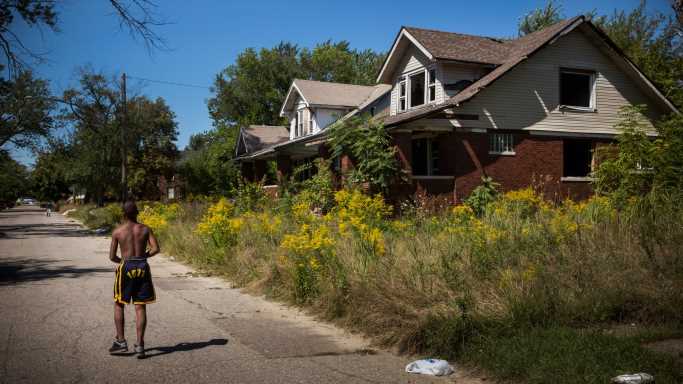The American City People Are Fleeing
Americans became unusually mobile early in the COVID-19 pandemic. Part of the reason was the mortgage rates were at 3% for months, which made homes historically affordable. The other was that people could work from home. Among the patterns was that people left the largest, most expensive cities for those less populated with lower living costs. While 7% mortgage rates have slowed home demand, there are still several metros people want to leave in droves. At the top of this list is Detroit, the poorest large city in the U.S.
Real estate website Redfin reviewed search data on cities people wanted to move to, and those people wanted to leave. CNBC reviewed the study and commented, “Of all homebuyers that search for property, 24.2% are looking for a home in a different metro area than where they live.” The research was based on a review of two million searches on Refine over the third quarter. Across 100 metros, the metric used was “for sale homes” by city.
The city with the higher percentage of people who searched elsewhere was Detroit, at 32%. Cleveland, another poor industrial city, was at the top of the cities Detroit residents wanted to go to. The yardstick measured the difference between people who looked to move to a city compared to those who wanted to leave.
The research did not mention why Detroit was the city the most people wanted to leave. In a sense, it is counterintuitive. The study stressed that people wanted to go to affordable cities. Detroit, however, based on home prices, must have among the lowest home prices of any big city in the nation.
Detroit may be so badly damaged by the number of people who have left since the middle of the last century that parts of it are uninhabitable. At the peak of the success of the American car industry, 1.5 million people lived in Detroit. That figure is currently under 700,000. Parts of the city are so blighted that homes have been torn down by the hundreds. City services are barely available in some neighborhoods because the city budget is so small.
Homes may be cheap in Detroit. However, there are reasons, and they are not good ones.
Sponsored: Tips for Investing
A financial advisor can help you understand the advantages and disadvantages of investment properties. Finding a qualified financial advisor doesn’t have to be hard. SmartAsset’s free tool matches you with up to three financial advisors who serve your area, and you can interview your advisor matches at no cost to decide which one is right for you. If you’re ready to find an advisor who can help you achieve your financial goals, get started now.
Investing in real estate can diversify your portfolio. But expanding your horizons may add additional costs. If you’re an investor looking to minimize expenses, consider checking out online brokerages. They often offer low investment fees, helping you maximize your profit.
Source: Read Full Article

